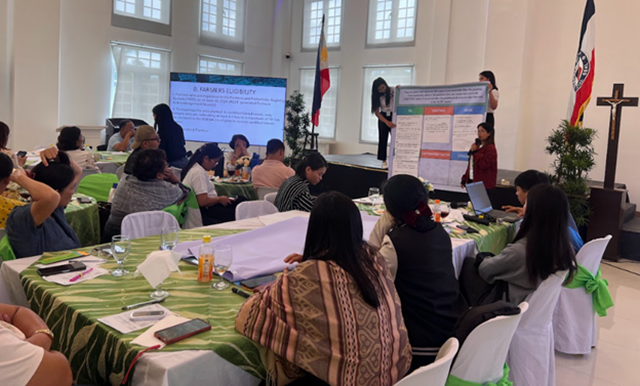
Farmers in Bicol and Eastern Visayas can anticipate a more efficient delivery of certified inbred seeds from the Rice Competitiveness Enhancement Fund (RCEF) in the upcoming 2025 dry season attributed to a recent series of workshops led by the Philippine Rice Research Institute (PhilRice).
The workshops, held in 12 provinces, prepared municipal agriculturists, rice coordinators, and agricultural officers with the necessary tools and knowledge to streamline seed distribution processes. They were trained on RCEF guidelines, including seed-claiming procedures, farmer eligibility criteria, seed allocation, and distribution mechanisms.
Discussions focused on aligning seed delivery schedules with local government units’ (LGUs) planting calendars, which is expected to reduce delays and logistical challenges.
To address persistent issues such as farmers claiming seeds based on residential addresses instead of farm locations, which lead to distribution mismatches, LGUs committed to open communication with neighboring municipalities to redistribute surplus seeds to areas facing shortages.
“The collaboration among LGUs is crucial in overcoming logistical challenges. Hearing their strategies during the workshops was inspiring and practical,” said Randyl T. Bombase, RCEF regional coordinator for Bicol.
Marvin Garcia, RCEF regional coordinator for Eastern Visayas, emphasized the importance of proactive planning to ensure seed allocations align with farmers’ needs.
“Prioritizing LGUs based on planting schedules has significantly improved seed delivery positioning and efficiency,” Garcia said.
Adela del Pilar Estacion, rice coordinator from Labo, Camarines Norte, said that the solutions underscore transparency, cooperation, and adaptability in enhancing RCEF seed delivery.
“We hope that this renewed collaboration and best practices will create smoother and more reliable seed distribution for farmers’ benefits,” she said.




